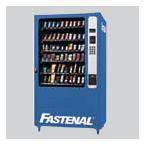NOTHING, you’d think, would be more dynamic or up-to-the-minute than how we buy and sell. From the early Greek agoras to the modern superstore, markets have always been the most sensitive barometers of economic and societal change.
However, today’s retail model is struggling. It’s still largely a system built for the realities of an earlier era—a linear, push-based process where products are manufactured in isolation and put into market en masse from factory to truck to store, for customers who do the majority of their shopping in suburban malls.
Global retail today sees lead times as long as six to 10 months, forcing vendors to make significant bets on inventory, consumer trends and distribution methods—bloating supply chains with a stockpile of $1.2 trillion in excess merchandise.
At the same time, retailers lose a staggering $93 billion in missed sales every year, simply because they don’t have the right products in stock to meet customer demand. And that demand is more demanding and immediate than ever before: in the US, over 92 percent of adults conduct research online and seek the opinions of others before they ever purchase a product from a store.
To do business with shoppers on a smarter planet, retailers and manufacturers need a smarter system, one that bends retail’s global supply chain to these new realities. It needs to be interconnected, so the system can be fed by customer insight at every point in the process—all the way from design to distribution. It needs to be instrumented, so every item of inventory can be tracked and accounted for. And it needs to be intelligent, so vast amounts of customer data can be analyzed and turned into real value in real time.
The German Metro Group, one of the largest and most international retailing companies in the world, has introduced RFID technology throughout its entire supply chain, to help them get the products its customers want on the shelves when they want them. And top clothing designer Elie Tahari has built an inventory-reporting platform that’s helped it better match its products to customer demand.
By building intelligence into our entire retail system, retailers, manufacturers and suppliers can eliminate inefficiency and waste at every step of the chain—crucial in the current economic downturn. Even more important, retailers can better serve the new breed of empowered consumer, whose needs for high-value, individual service and low prices will only grow.
Source: businessmirror.com.ph





















